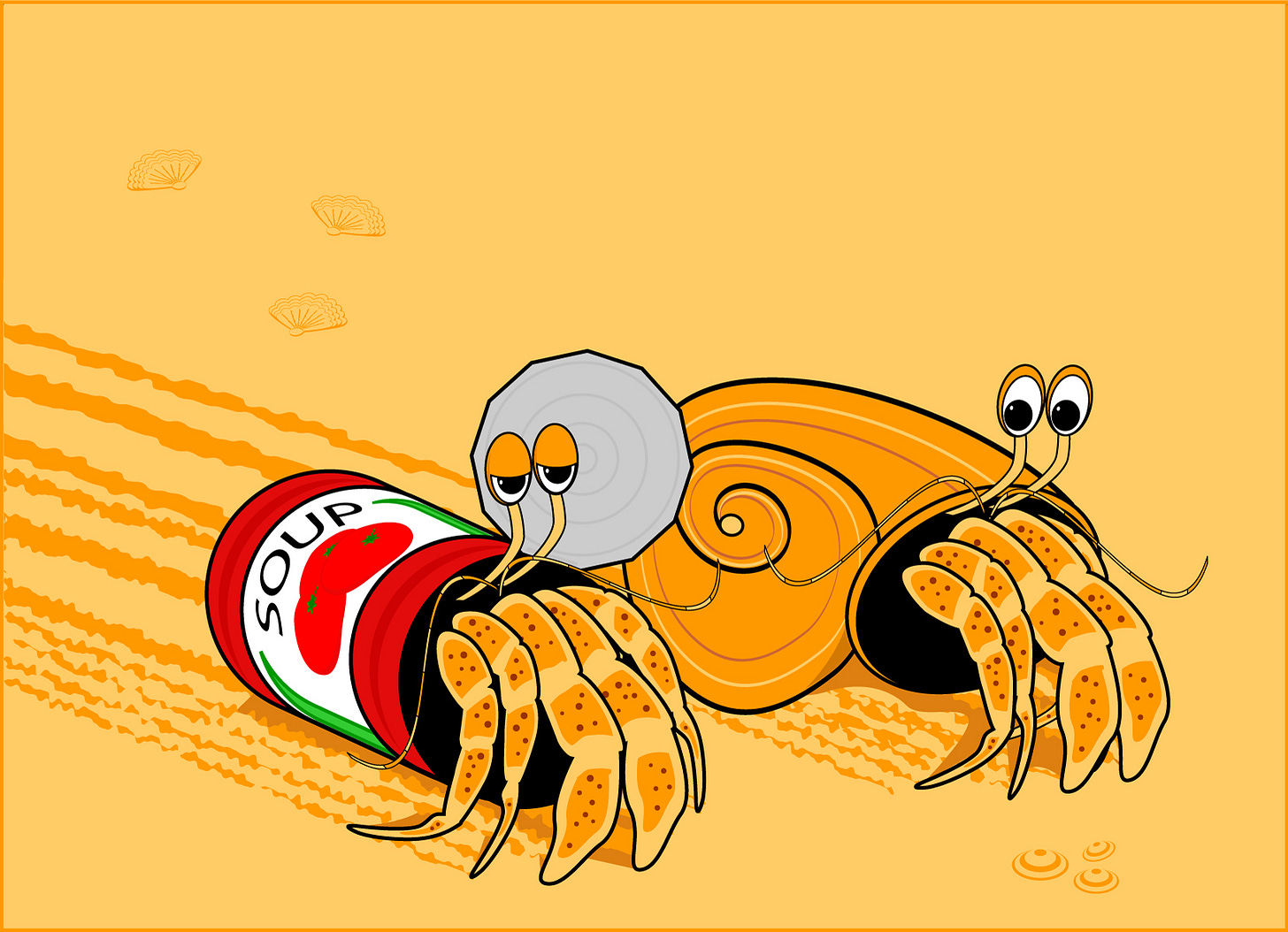How to be alone (actually alone)
Not alone with your phone, but alone -- a guest column from Jade Angeles Fitton, author of Hermit.
Jade Angeles Fitton is a writer, journalist and an award-winning producer. Her first book Hermit came out last month (described as “piercingly lyrical” by The Times). I was lucky enough to have read an advance copy of Hermit earlier in the year and I was hooked. It is a compelling, engrossing memoir that beautifully encapsulates the human experience (both the misery and the magic) of suddenly finding yourself rebuilding life from the ground up, alone.
I absolutely loved her writing about going back to rural nature, the landscape around her, finding peace, being with herself after a traumatic few years. I am an absolute sucker for memoirs written by women on solo adventures, and this is now up there as one of my new favourites.
A chance encounter with Jade made me love her even more. In April when I was recording my audiobook (for The Success Myth) at the Penguin offices, so was she. We bumped into each other in the toilets while washing our hands (chic) and then we had lunch together in between our recording sprints. It was quite a magical experience as I’m such a fan of her writing.
In this guest column, she writes about the universal conundrum that plagues so many of us: how to actually log off social media and spend a chunk of time alone, as in, not alone with your phone — but really alone. (Something most of us find quite daunting.) As someone who is an expert on this (why not grab a copy of Hermit) she passionately believes that if we’re to benefit from our time alone — be that an hour, a day, or a week, we could consider logging out of everything that takes our attention elsewhere and see how it affects the passing of time, allowing curiosity to lead the way.
Over to Jade….
How we benefit from our time alone by Jade Angeles Fitton
Chances are, if you’ve had five or ten minutes by yourself today, you’ll have gone on social media. Hermit is about my time spent in solitude and how I came to love it— about more than loving it, as it felt like it loved me back: I rebuilt my life with the help of solitude. When I was left alone in a converted barn on Exmoor with no public transport or shops I was lucky in that I had no fear of solitude. I was at such a low ebb that I was functioning mostly on instinct, and I had two guiding instincts: that I wanted to write, and that I wanted to be alone. I quickly rediscovered the joy of being alone in nature. Jane Goodall, the primatologist, said that after the first week alone she didn’t feel lonely. Alone, she said, ‘You become a part of nature’. And soon, solitude became a state of being that I began to crave in other areas of life—my online life.
Previously, I’d always been posting — photos, updates, and (what I believed to be) witty anecdotes. Then I slowed down. I was so stunned by my new situation that I had nothing to say. I didn’t want to say anything. I began logging out of my accounts and suddenly felt what it was like to be truly alone, rather than being alone and scrolling through the glowing, spectral presence, emotions and opinions of hundreds, thousands, millions of others. Suddenly, all this attention I’d not realised was distracted poured back into my immediate experience. The important clarification to make is that I no longer wanted to be distracted from my situation. I was somewhere I wanted to be and ‘logging out’ became something I looked forward to. It was easier to concentrate on my work. I was less anxious because my anxieties typically came from other people, not my immediate surroundings, not the immediate moment. I saw and experienced things that I didn’t tell anyone else about. They were mine and I absorbed them fully and in totality. I had spent the previous decade giving. Now, I was filling myself back up.
“I was less anxious because my anxieties typically came from other people, not my immediate surroundings, not the immediate moment.”
‘Logging out’ is a practice I continue, eight years on. Logging out of social media is one thing I feel totally confident in saying, ‘I am good at this’. Unless I have to be online to post something I log out of social media after work every night and I log out at weekends. I wasted so much time that now it is precious, and if I don’t want the days to slip away I must bring myself back down to earth. I must ground myself. Be here, now. Experience this. Admittedly, part of the experience of being alive today includes social media. It’s never been more important that our opinions are informed by the experience of others as well as our own, but, equally, it’s never been more difficult to hear our own voice, our own beliefs and opinions. Studies frequently show that, although connection is important, the more online we are – typically (though not always) – the more unbalanced we become in real life. It’s finding a balance and not letting one world take over, not letting the online world prevent us from seeing and experiencing this one fully.
Some of Jade’s tips on logging out:
Keep reading with a 7-day free trial
Subscribe to The Hyphen by Emma Gannon to keep reading this post and get 7 days of free access to the full post archives.





